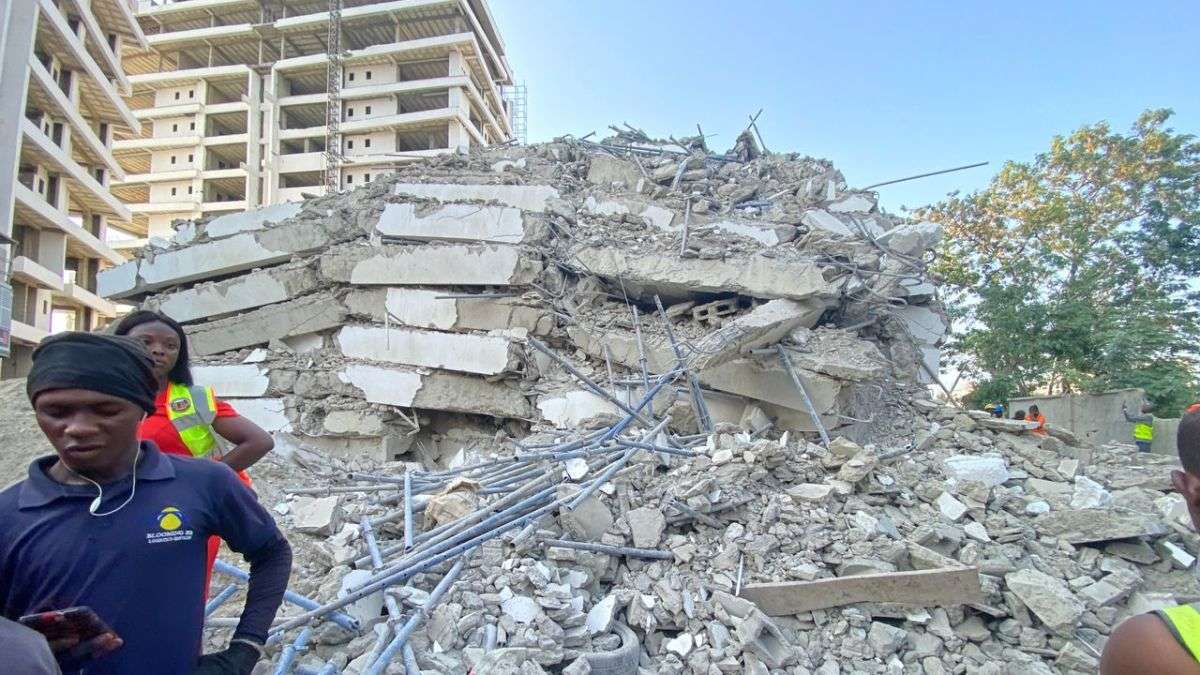Stakeholders in Nigeria’s construction and housing sectors have reiterated the urgent need for the enforcement of the National Building Code to curb the growing incidents of building collapses across the country.
This call was made during a stakeholders’ forum where experts, policymakers, and regulators gathered to deliberate on the challenges facing the construction industry and chart a sustainable path forward.
The forum, organized by the Standards Organisation of Nigeria (SON) and proudly supported by the Housing Development Advocacy Network (HDAN), brought together leading figures from the construction, engineering, and architectural professions, as well as manufacturers of building materials.
Participants expressed concern over the alarming frequency of building collapses, which they attributed to substandard materials, inadequate supervision, and the involvement of unqualified individuals in construction projects.

Builder Samson Opaluwah, Chairman of the Council of Registered Builders of Nigeria (CORBON), stressed that unqualified individuals cutting corners and using substandard materials remain a factor in structural failures. “The National Building Code, which outlines all necessary safety and professional guidelines, must be passed into law and strictly enforced to address these issues. Only certified professionals should oversee construction projects,” he said.
Professor Samson Duna, Director-General of the Nigerian Building and Road Research Institute (NBRRI), highlighted the influx of substandard building materials in the market as a critical problem. “Materials such as iron rods, paints, cables, and toilet fittings are often below quality standards. This poses a severe risk to structural integrity and public safety. SON must intensify its regulatory oversight to stem the tide of substandard imports and locally produced materials,” he noted.
A representative of the Nigerian Institute of Architects emphasized the critical role of the National Building Code in establishing a unified framework for construction standards. “The code has been on the shelf for too long. Without its passage into law, enforcing safety standards remains an uphill battle. Collaboration among professionals is crucial to ensure the integrity of our structures,” he said.
Industry leaders also underscored the importance of local solutions in addressing these challenges. Prof. Omar Buba Bindri noted that prioritizing research and development is key to advancing construction technologies and reducing dependency on imports. “The government must create a supportive environment for local manufacturers and ensure that building products meet international quality standards,” he said.

The Manufacturers Association of Nigeria, represented by Prince Oba Okojie, Chairman, Steel Manufacturers Group defended the quality of their products but called for increased accountability across the supply chain. “Steel alone cannot be blamed for structural failures. Stakeholders, including contractors and clients, must ensure adherence to standards and resist the urge to cut costs at the expense of safety,” he said.
The forum also addressed the need for integrating practical training into the academic curriculum to better prepare future professionals for the industry. Prof. Abdulhameed Mambo, Dean of the Faculty of Environmental Sciences at Nile University, called for increased collaboration between academia and industry to ensure graduates are equipped with the necessary skills.
The stakeholders unanimously agreed that domesticating the National Building Code and ensuring its enforcement is a non-negotiable step toward curbing building collapses and fostering sustainable development in Nigeria’s building and construction sector.
The National Building Code (NBC) of Nigeria was approved in 2006 by the Federal Government, but it has not yet been fully domesticated by states or given legal backing. The NBC is a set of laws that establishes minimum standards for the design, construction, and post-construction phases of a building.




